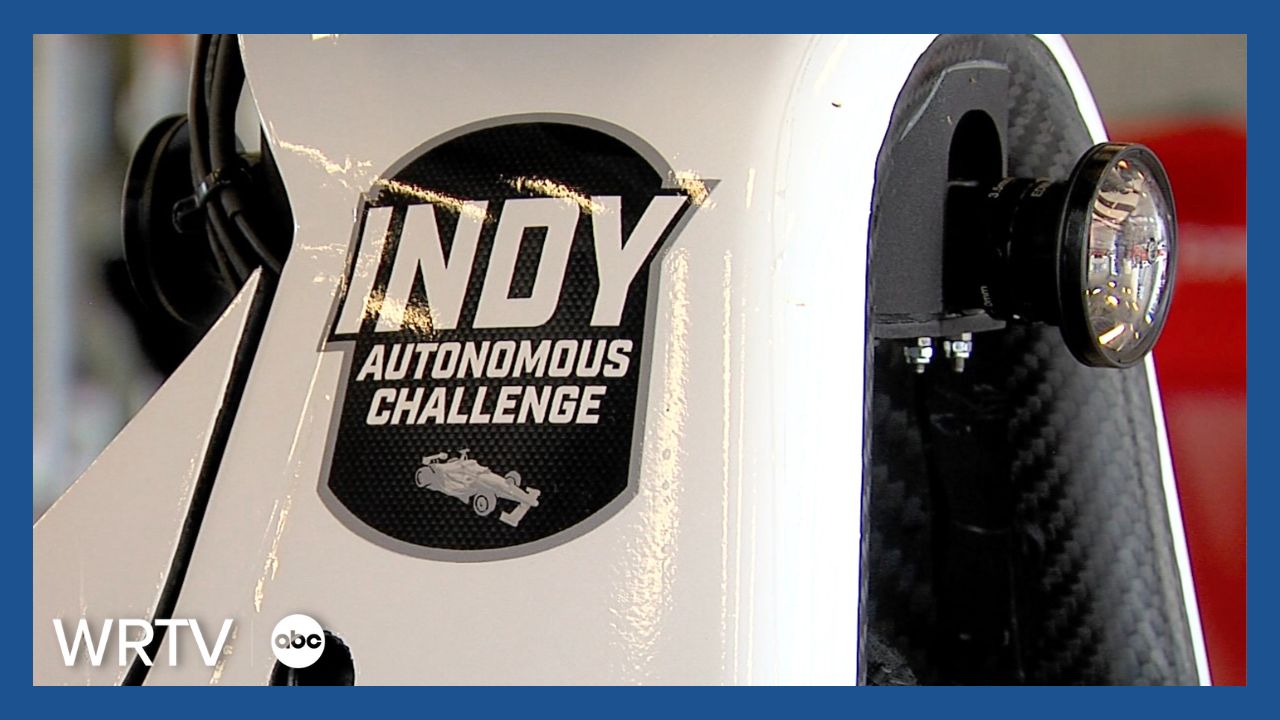INDIANAPOLIS — The Indianapolis Motor Speedway is home to fast cars and skilled drivers. On Friday, there were fast cars but with no drivers insight.
Instead, PHD students from all over the country programmed AI drivers to cars as part of the Indy Autonomous Challenge.
While the event itself is just downright cool, the organization and the teams say the technology they are using can be used to help better develop the self-driving cars of the future.

"I never thought that during my PHD, I would be working on something like this,” Durgakant Pushp, a PHD student and team lead at Indiana University, said. "This is also a kind of new concept that we are trying to run a full-sized race car fully autonomously."
Pushp is one of 250 PHD students from across the country that took part in the challenge. The race was the brainchild of the Indiana Economic Development Corporation to study a different kind of automated vehicle, race cars.
"The core technologies that are being developed and proven in the Indy Autonomous Challenge are pieces of the puzzle that has to come together for real safe autonomous mobility,” Paul Mitchell, the President of Indy Autonomous Challenge, said.

These races serve three purposes: testing the hardware, building a pipeline of talent that can work in the AI sector and changing the hearts and minds of people who might find the idea of driverless cars scary.
"People need to realize that AI is not a singular thing,” Mitchell said.” There’s a lot of ways AI can be used to improve human lives and enhance human capabilities.”
Educators worked with the students to code the AI drivers. They believe self-driving cars could serve a larger purpose for some of humanity's most vulnerable populations.

"People, once they get older, their capability for understanding or acting rapidly can decrease,” Lantao Liu, an associate professor of the IU Luddy School of Informatics, Computing and Engineering, said. “In this way, they may have to rely on self-driving cars for transport."
This is the seventh event that the Indy Autonomous Challenge has held, and those events have taken place across the world.
They hope that the technology being tested can be deployed into the real world within the next five years.
The self-driving cars can go about 170 miles-per-hour. They currently race individually, and whoever reaches the highest speed wins. The teams hope they can eventually compete at the same time.
For more information about the challenge, click here.








